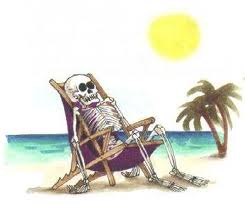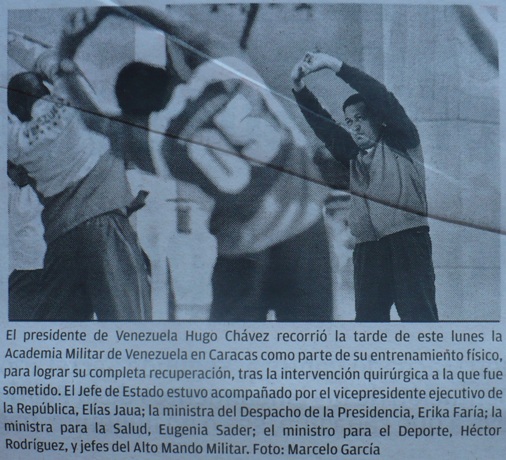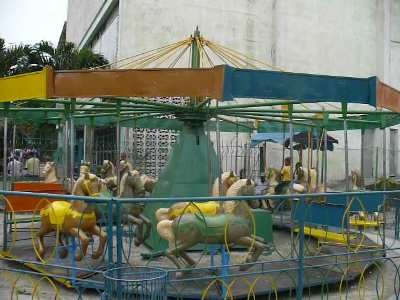
It is nobody’s secret that we Cubans are comiendo el cable (“eating the cable”). This is an expression of the popular argot in Cuba used to allude to a person or group that is going through a hard time, that feels itself to be a victim of neglect and that accumulates many unresolved needs. Many cannot visualize a horizon where satisfying their needs doesn’t entail moving beyond our borders; others, have the luck of belonging, maybe even from a seminal accident, to the olive-green royalty, and enjoy the benefits that their relatives or contacts trained in the ideology of the chat in time and the public and opportune praises for the historical leader can allow them.
They are the children and grandchildren of the so called Revolution, the paragon of “those who don’t traffic in influences” nor do they stoop to oligarchic behaviors to establish their own — because it would be immoral to practice that which led them to armed struggle first and then to power; those who are models of loyalty and its problems, as long as they haven’t committed a disloyalty or problem of principles, who minimize themselves through a thoughtful gift and stereotype it as an antic, never as corruption.
They are the descendents and unconditionals of the sharks who fear freedom of information, those called to work side-by-side with the foreign investors, those enabled to occupy a position that results in juicy returns with “enemy money” in the accounts that they probably have overseas providing for the inevitable change, while Cuban workers are exploited with symbolic salaries and a currency turned evil.
Despite the official excessive secrecy that they have turned into tradition, by different means the comments of a new scandal of corruption reach them, associated with the higher echelons and reliable businessmen installed by the nomenklatura in mixed enterprises and foreign corporations.
The fiber optic conduit that left Venezuela, arrived in our territory in February this year, and should have been operational in July, but it was a disaster because those chosen by the authorities were so busy planting dollars in their own financial grove, that they bought the cheapest technological cable, one without the shielding required to protect against bites from sharks that inhabit the Caribbean.
Hasn’t it been a policy directed by the caste of the country that products be acquired elsewhere so we can save our currency reserves? There is also talk about the abduction of funds destined for the cable’s activation, that have frozen its implementation. I don’t know if this is real or if it’s an information cocktail that they allowed to filter to continue violating Cubans’ rights to the internet.
In any event, any skullduggery by the state elites and their partisans is credible when they train their chosen in the practice of their capitalism. It is also rumored in Havana that the media grave weighing in this matter is due to the lineage of those involved and their hangers-on, and that soon they will get the blow required in such cases.
To simple citizens, we who know of unripe and ripe, we get spoiled and it looks as if we continue to be witnesses to the crumbling of this deja vu dictatorship and the immobility they hold on to, like the chrysalis of rock discordant with the modern world’s democratic symphony
Our anguish to scream sticks in our throats; but the death rattles of the model are so evident that the opportunists of the upper class leadership risk exchanging their Communist party red cards for green paper money, and we wonder how many more of these are hidden, still shouting out empty slogans in exchange for favors, which is to sin against ideology. While these hindrances of a discredited system fatten their personal fortunes with their influences and their false doctrine, we ordinary Cubans the true sharks that for these last few decades eat the cable of hope, and of undelivered promises that, in a model like this, will never come.
Translated by: lapizcero
October 4 2011


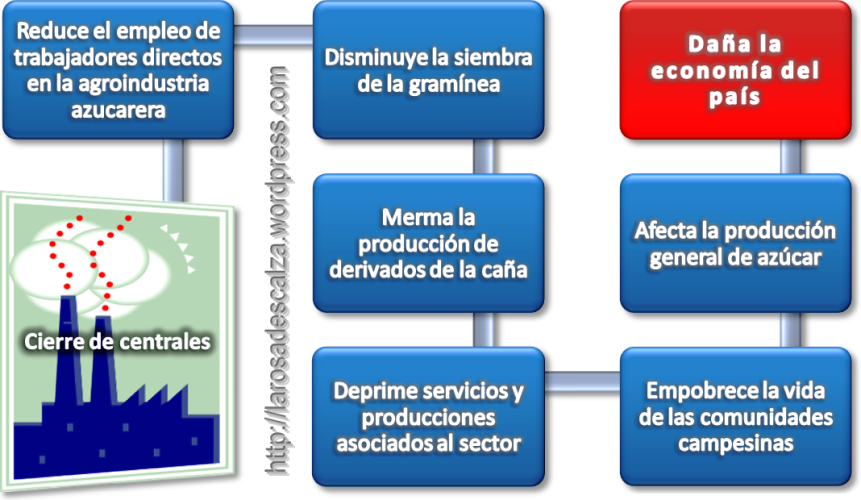

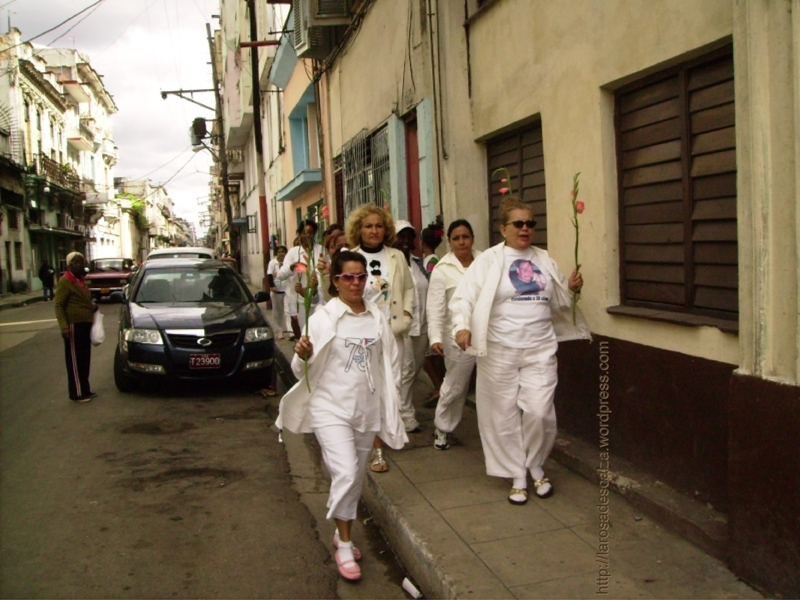

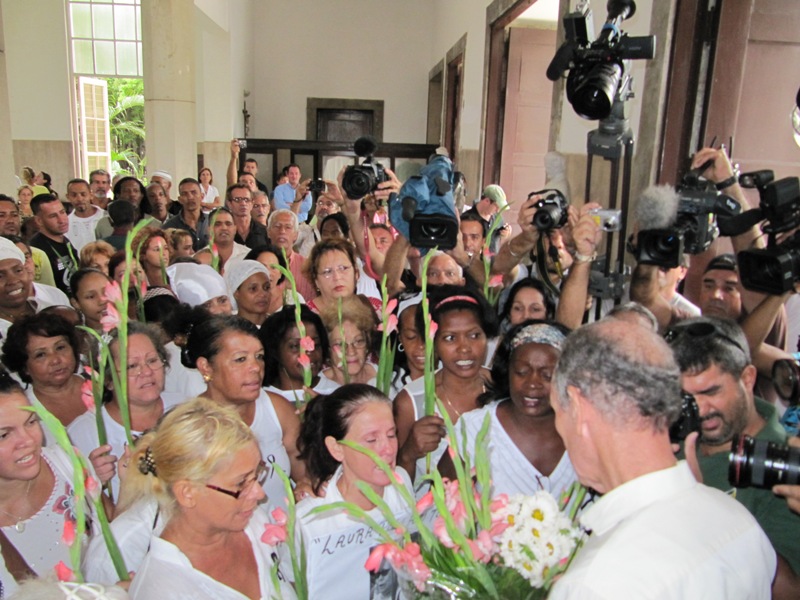
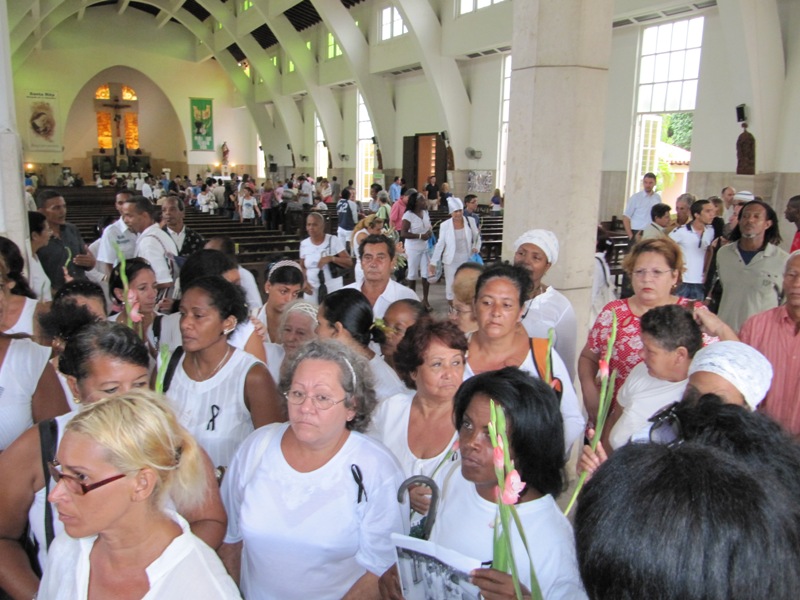
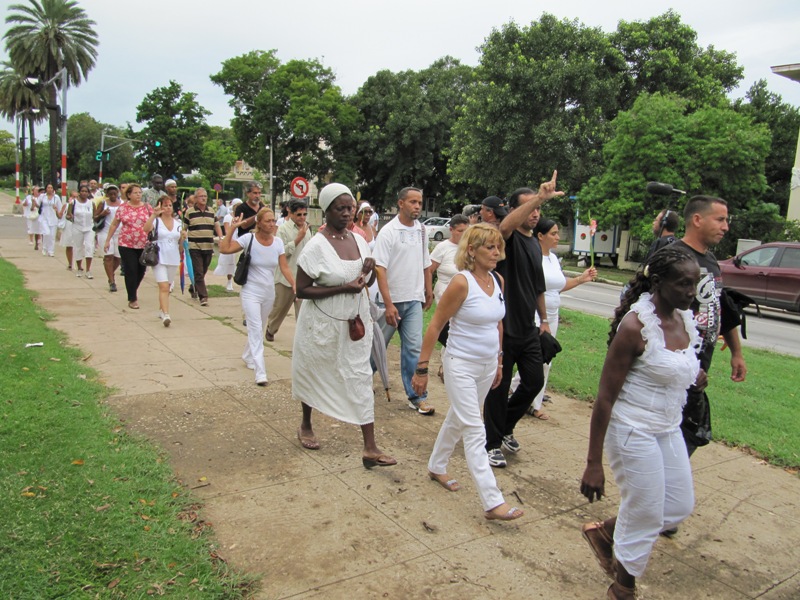
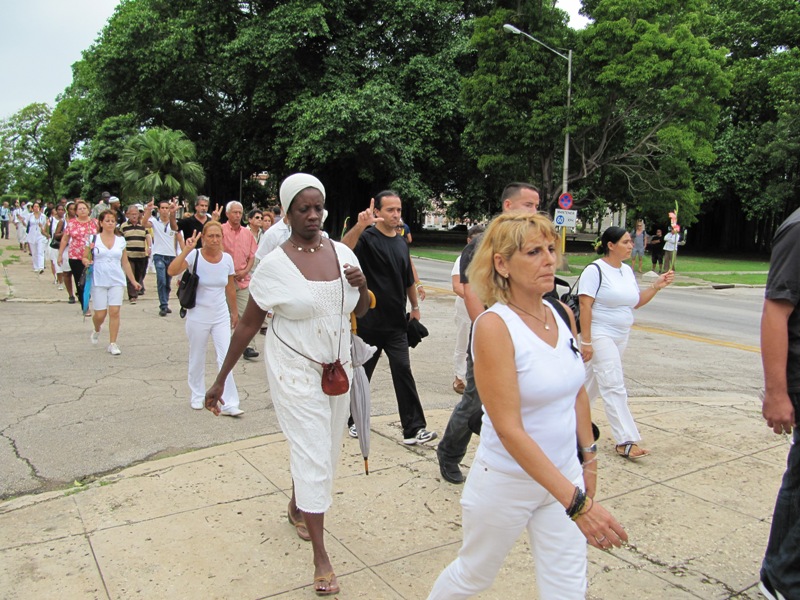
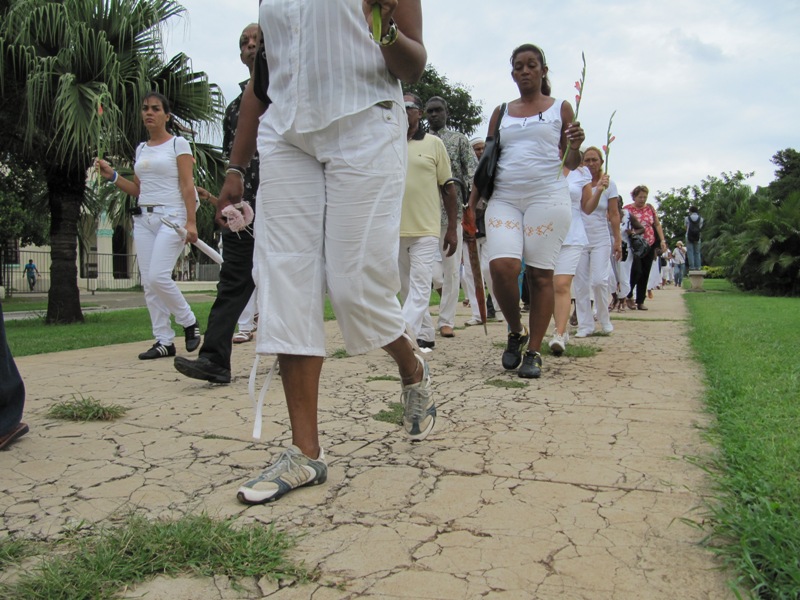
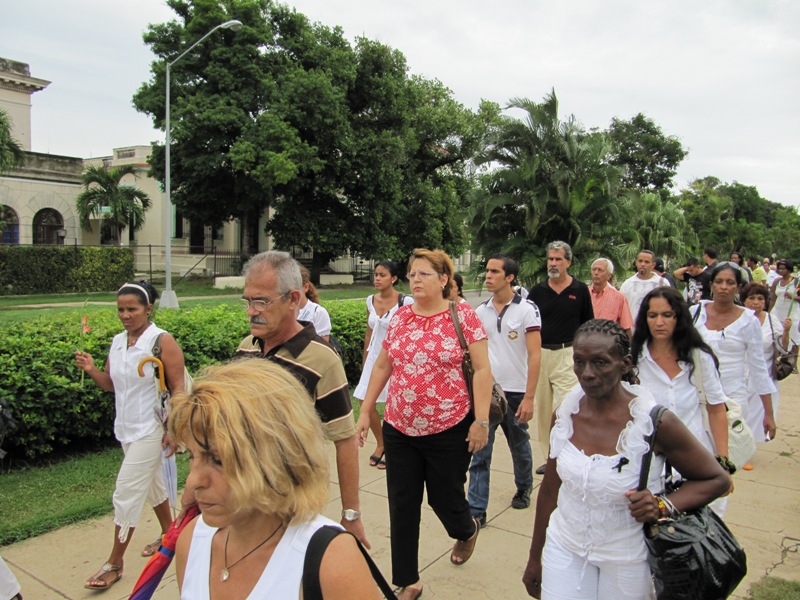
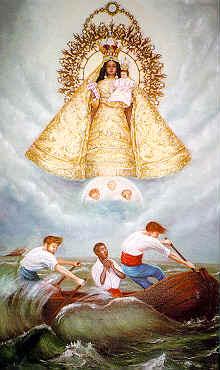
 In Cuba, we often visit homes where their residents hang, on the inside of the main door, the image of an eye. It is a symbol associated with African-originated religions, such as one that shows a tongue traversed by a dagger.
In Cuba, we often visit homes where their residents hang, on the inside of the main door, the image of an eye. It is a symbol associated with African-originated religions, such as one that shows a tongue traversed by a dagger.
